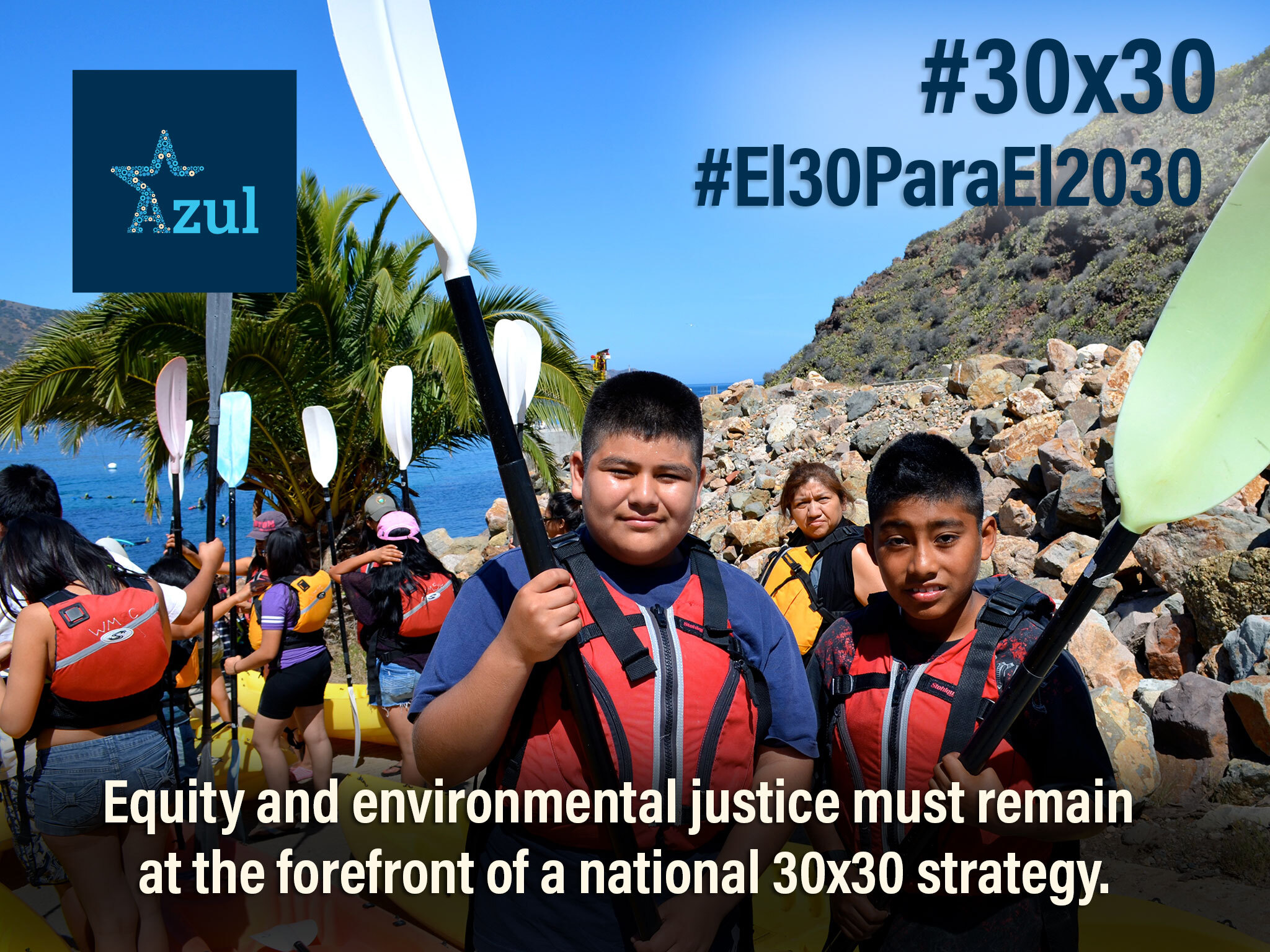Our recommendations for a federal 30X30 strategy centered around equity and access

After Azul fought to include equity, environmental justice, and access principles into California’s AB 3030, California Governor Gavin Newsom enshrined these principles into the state’s 30×30 goal. Following California’s lead, President Biden mandated federal agencies to develop recommendations on how to conserve 30 percent of the nation’s land and waters by 2030 and committed to “deliver environmental justice in communities all across America” and “improve access to recreation.” Azul was proud to see the Department of the Interior (DOI) further prioritize these principles in the “Conserving and Restoring America the Beautiful” report published this summer.
Since then, the National Ocean and Atmospheric Administration (NOAA) has conducted two stakeholder engagement sessions to inform how they should conserve and restore America’s ocean, coasts, and Great Lakes. Azul is proud to have participated in these sessions by submitting public comments. Additionally, we developed a list of recommendations to assist the Department of the Interior, the Council on Environmental Quality, and the National Oceanic and Atmospheric Administration’s federal 30×30 strategies. We hope these recommendations serve as a guide for the Biden Administration as DOI prepares to publish its first report on national 30×30 progress at the end of this year.
Our federal recommendations build on the California-specific recommendations we recently presented to the state’s Natural Resources Agency and both seek to ensure that Black, Indigenous, and People of Color (BIPOC) communities, who often bear the brunt of environmental degradation, have a critical voice in marine conservation. “Communities of color continue to experience a significant lack of access to nature and its benefits, and the climate crisis is only going to aggravate this problem. The Biden Administration should incorporate these recommendations into their 30×30 strategy to center equity and environmental justice in order to change this” says Azul’s Founder and Executive Director Marce Gutiérrez-Graudiņš.
As highlighted by the COVID-19 pandemic, a lack of access to nature affects our mental health and physical wellbeing. And the recent Intergovernmental Panel on Climate Change (IPCC) report, which warned that the Earth’s temperature is likely to reach the 1.5°C threshold by 2040, confirmed that climate change will exacerbate the loss of nature everywhere. But BIPOC communities are the most likely to experience nature deprivation and are less resilient to extreme weather events.
“As our organization works to ensure equity principles are upheld in California, we look forward to further engagement with federal decision makers on President Biden’s 30×30 vision,” says Carlos Ochoa, Azul’s National Policy Associate.